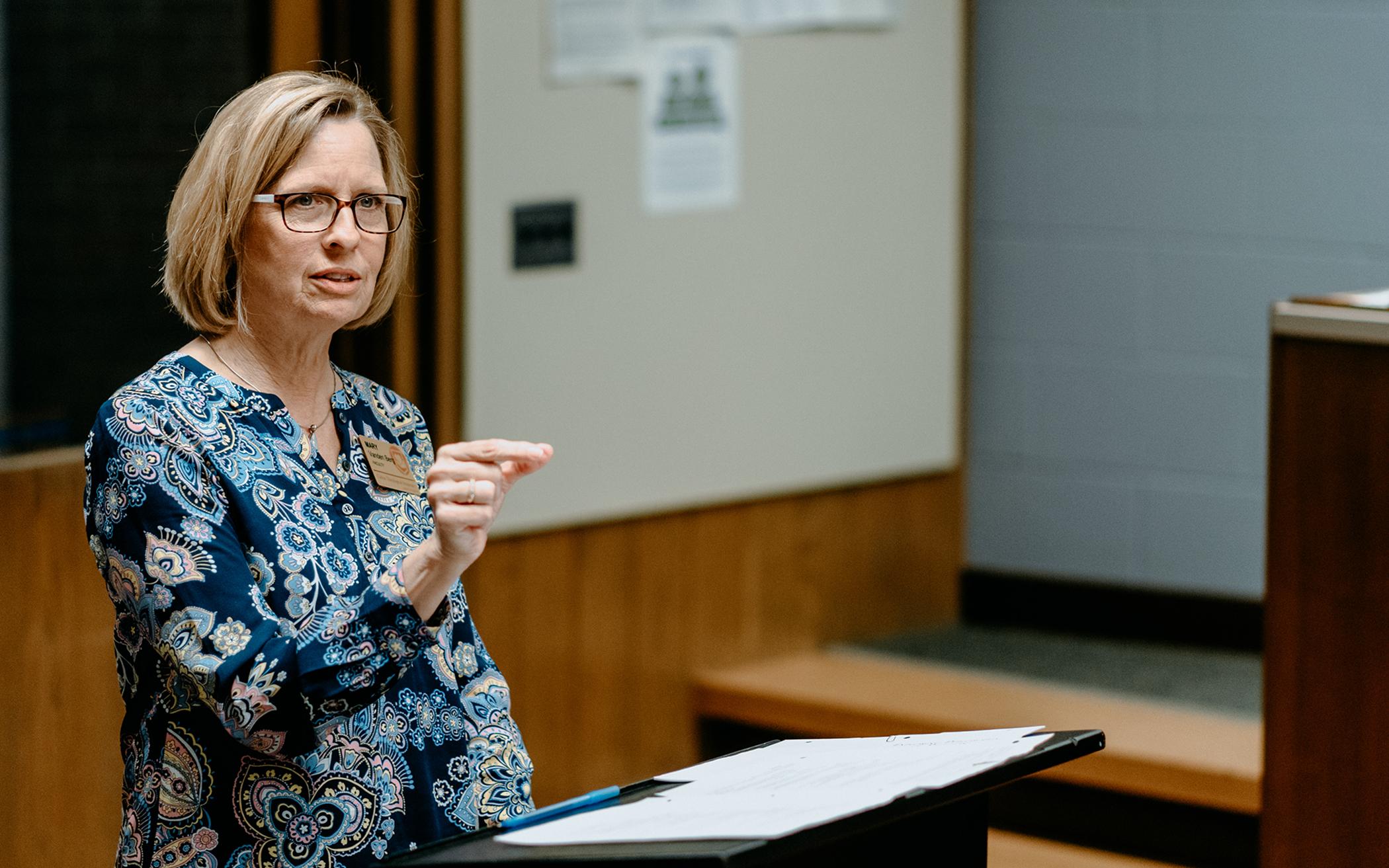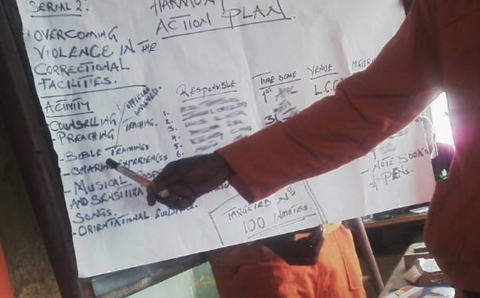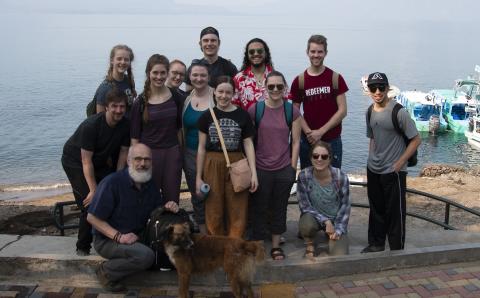Despite ongoing scientific advances in the understanding of the universe, there remains—and likely will remain—a great deal of mystery in this life between how we consider what science is telling us and how we understand Scripture, said Mary Vanden Berg, professor of Systematic Theology at Calvin Seminary.
Whether there could be a concordance, or detailed list, that might someday tie the two together and offer a full explanation of God’s creation, she remains skeptical.
And this could be because the two have different purposes.
“The job of science is not to teach us about God. It is to help us understand the natural world. Scripture’s sole purpose is to teach us about God and the relationship of God and humans in this world, questions that science is not equipped to address,” said Vanden Berg.
In 2018, Vanden Berg was a research grant recipient of the Creation Project, part of the Henry Center at Trinity Evangelical Divinity School in Chicago, Ill.
The Creation Project aims to “catalyze a field of study around the doctrine of creation that is faithful to Scripture and informed by contemporary scientific research.”
Among her interests as part of the Creation Project, Vanden Berg looked into the topic of theological anthropology.
The focus of this work “was to explore humans as the image of God from a Reformed perspective.”
As she began to read widely on the topic, she found herself drawn to Thomas Aquinas’s “Treatise on Man” and especially the Summa Theologia.
Studying the 13th-century theologian, she said she realized that Aquinas had a holistic understanding of what humans are, how they operate, and what they are made for.
And while he does deal with the image of God, as do most theologians, she said, “Aquinas understands humans in terms of the big package rather than this one little piece.”
As a result of studying Aquinas, Vanden Berg shifted from looking rather narrowly at the image of God, to the broader question of what makes humans unique.
It was exactly at this point, as Vanden Berg notes, that science came more fully into the picture.
In part, this is because some scientists suggest that humans aren’t really that unique at all. For example, she said, some scientists suggest that humans are just another animal that walks on two legs instead of four. Working off of what she thinks is a basic instinct that humans are unique, Vanden Berg set out to see if and how humans actually are unique by looking at Scripture, theology, and modern science.
In the process, Vanden Berg looked at the connection between the two books of revelation—God’s creation as we know and can experience it and Scripture.
The key word, she said, is “revelation.”
“The idea behind revelation,” stated Vanden Berg, “is that apart from God making himself known to us, we cannot know God.”
So when such theologians as John Calvin discuss the two books, he is not talking about how we come to know the structure of a cell or some other scientific knowledge.
He is instead referring to how we come to know God.
So the question with respect to the two books of revelation is not what can we know in general from these two sources, but what can we know about God, that is, about “his eternal power and his divinity.”
The overarching point in understanding God’s revelation in two ways or two books is to remind us that while we can come to know something about God from the creation, we will inevitably, because of sin, distort that knowledge and worship the creature in place of the Creator.
Thus the need for the second book, Scripture, which Calvin describes as “spectacles.”
Through these spectacles, said Vanden Berg we can come to properly see and ponder “the invisible things of God” in creation.
The proper response to that knowledge of God is worship. Through the spectacles of Scripture, you can look at creation, whether you are in the lab or on a hike, and say, “Look at this amazing world! Imagine the marvelous God who made this.”
About the Author
Chris Meehan is a freelance writer and commissioned pastor at Coit Community Church in Grand Rapids, Mich.








